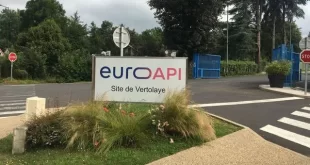Applications are being sought for a full-time tenure track position at the rank of Assistant Professor with expertise in Asian Refugee Literatures and Cultures, to be housed in the Department of World Languages and Literatures with 50% dedicated workload in the Global Asia Program starting July 15, 2024.
Qualifications
The successful candidate will possess a strong record of research in the literary, cinematic, and other cultural production of refugee subjects within and/or from Asia (defined broadly), with preference given to candidates with expertise in southeast, southwest, or south Asian refugee studies. They will have teaching interests and demonstrated experiences that are inclusive, interdisciplinary, and cross-border in approach; and work with two languages in addition to English. Ideally, they will also possess deep ties to one or more communities formed out of the experience of displacement.
The successful candidate must hold a PhD in Comparative Literature, Asian Studies, Middle East Studies, American Studies, or a closely related field by the employment start date. However, PhD candidates with solid indication of imminent completion may be hired at the rank of Instructor and will be promoted to the rank of Assistant Professor upon completion of the PhD. This is a junior faculty position. Only those eligible to be appointed or promoted to the rank will be considered.
Duties
The successful candidate will be expected to contribute to the University’s research excellence through a rigorous and collaborative research program. The candidate will be expected to teach courses in both the undergraduate and graduate program in areas such as refugee studies and Global Asian literary and cultural studies. Finally, it is expected that the successful candidate will contribute to the Department, Faculty, University and the academic community through service.
The Department of World Languages and Literatures offers a rigorous and innovative undergraduate program offering a Major, Minor, and Honours degree in the cross-cultural study of World Literature. The Global Asia Program is an interdisciplinary undergraduate program that brings together the study of Asian and Asian diasporic people, places, cultures, and societies. The normal teaching load for this position is four undergraduate courses per year, split between both units, taught in two of three terms with the third for research.
Applications will be treated in confidence and should include: a cover letter, a statement of research (no more than 2 pages); and teaching dossier (including a 1-2 page statement of teaching philosophy, sample course outlines, and evidence of teaching effectiveness); a curriculum vitae; 1 writing sample (no more than 30 pages); and 3 confidential letters of reference.
Applicants should arrange for letters of reference to be sent directly by email attachment to wll_admin@sfu.ca. All materials should be sent as a single PDF document by email wll_admin@sfu.ca with the subject heading, 2023 Assistant Professor Application (Applicant Name). Questions about the position can be directed to Dr. Azadeh Yamini-Hamedani at azadeh_yamini-hamedani@sfu.ca and/or to Dr. Nadine Attewell at nadine_attewell@sfu.ca.
Review of complete applications will begin on October 15, with preference given to applications received by then. The position will remain open until filled. Further course syllabi and a diversity and inclusion statement may be asked from short-listed candidates at a later date.
All qualified candidates are encouraged to apply; however, Canadian citizens and permanent residents will be given priority. SFU is an equity employer and encourages applications from all qualified individuals including women, persons with disabilities, visible minorities, Indigenous Peoples, people of all sexual orientations and gender identities, and others who may contribute to the further diversification of the university. SFU recognizes that alternative career paths and/or career interruptions can impact research achievements and commits to ensuring that leaves are taken into careful consideration. Under the authority of the University Act, personal information that is required by the University for academic appointment competitions will be collected. For further information see: http://www.sfu.ca/vpacademic/Faculty_Openings/Collection_Notice.html
Simon Fraser University is a public institution whose strength is based on our shared commitments to diversity, equity, inclusion, and decolonization. We acknowledge the Xʷməθkʷəy̓ əm (Musqueam), Skwxwú7mesh Úxwumixw (Squamish), Sə ̓lilwətaɁɬ (Tsleil-Waututh), Katzie, Kwikwetlem, Qayqayt, Kwantlen, Samiahmoo and Tsawassen peoples on whose unceded territories Simon Fraser University’s three campuses reside. In so doing, we acknowledge Indigenous stewardship both past and present. Our words of recognition indicate our aspiration to create a space for reconciliation through dialogue and decolonizing practices.
Simon Fraser University is an institution whose strength is based on our shared commitments to diversity, equity, and inclusion. Diversity is an underlying principle of our Strategic Vision, which pledges SFU to “foster a culture of inclusion and mutual respect, celebrating the diversity reflected among its students, faculty, staff, and our community. SFU works to advance the interests of underrepresented members of the work force, specifically Indigenous peoples, persons with disabilities, racialized persons, and women; embrace gender and sexual diversity; ensure that equal opportunity is afforded to all who seek employment at the University; and treat all employees equitably. SFU has adopted the recommendations of the Aboriginal Reconciliation Council report and committed to the strategic hiring of Indigenous scholars across the University. Units across the institution are also actively engaged in the process of fulfilling a September 2021 Senate motion in support of the hiring of 15 Black scholars. Finally, SFU is committed to developing curricular programs that incorporate knowledges historically devalued by the university, such as the Global Asia Program and Indigenous Studies. SFU’s Black Caucus and Queer Faculty Network are two examples of faculty-led initiatives making safer scholarly spaces and uplifting the work of historically marginalized colleagues. The appointment committee enthusiastically welcomes applications from scholars belonging to underrepresented groups.
Caractéristiques de l'emploi
| Catégorie emploi | Enseignement et recherche scientifique |
 Etudes Non Stop Etudes Non Stop
Etudes Non Stop Etudes Non Stop



